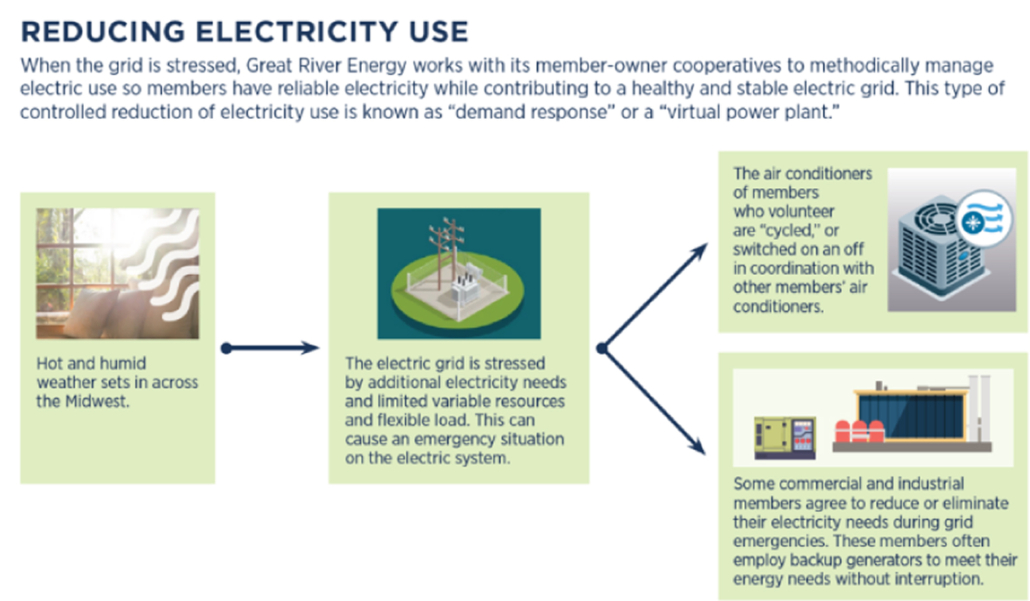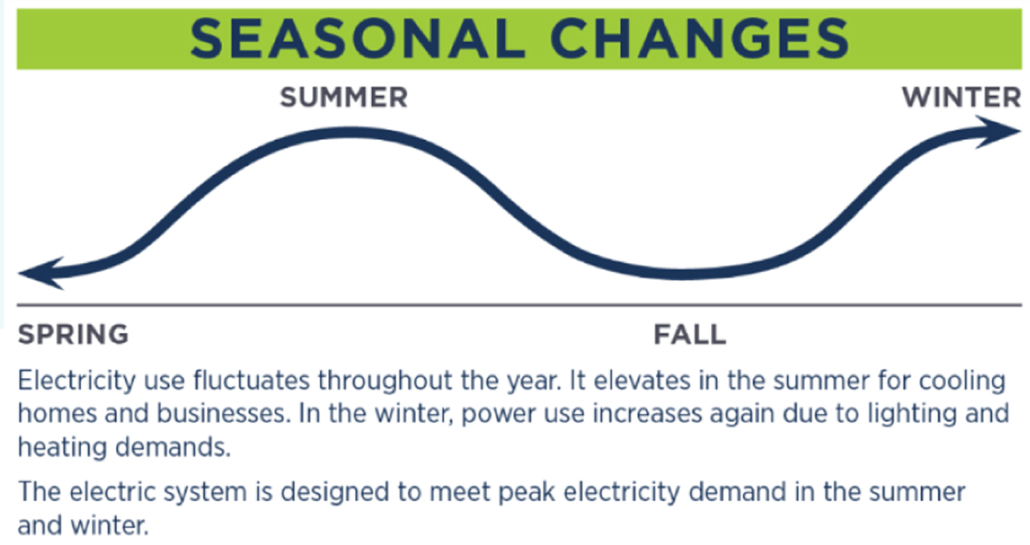Electric system resilient during sweltering heat
Great River Energy (GRE)
This summer’s hot weather has led to Minnesotans scrambling for shade and seeking refuge in the air conditioning—but the electric grid has performed as expected, even when demand for electricity approached record levels.
“We were staffed up and monitoring the situation closely, but the transmission network overall held up quite well,” said Mark Peterson, system operations manager for Great River Energy.
GRE provides wholesale electricity to 28 member-owner cooperatives in Minnesota, including Steele-Waseca Cooperative Electric. Those cooperatives collectively serve over half of the state’s geographic area.
The Midcontinent Independent System Operator (MISO) implemented conservative operations on June 15 in anticipation of a prolonged heatwave; however, it did not enact any emergency measures to maintain system reliability.
According to GRE Market Strategy Director Greg Padden, the cooperative’s power supply resources had a solid week as well. Wind resources were very strong June 19-21, which helped keep market prices moderate in our region despite the heat.
“As the wind tapered off midweek, we began to see our peaking stations dispatched more frequently,” said Padden. “Last week demonstrated our power supply strategy in action. Wind resources provided low-cost energy much of the time, but our natural gas peaking plants were ready to ensure reliability for the grid and provide energy hedges for our member-owners as market prices escalated.”
Great River Energy also relies on member-owner demand response programs to manage costs and reduce demand for electricity.

GRE Member Services Manager Jeff Haase said demand response activity began picking up around June 14 as heat and humidity crept into the Midwest. Great River Energy dispatched demand response programs several times after that date, culminating on June 20 when the cooperative performed full load control. This included calling on interruptible commercial, industrial, and agricultural program participants that either curtail or utilize generators to reduce demand.
“Having control over a portion of electric demand is extremely valuable to our membership,” said Haase.


Service
#swceSERVICE





